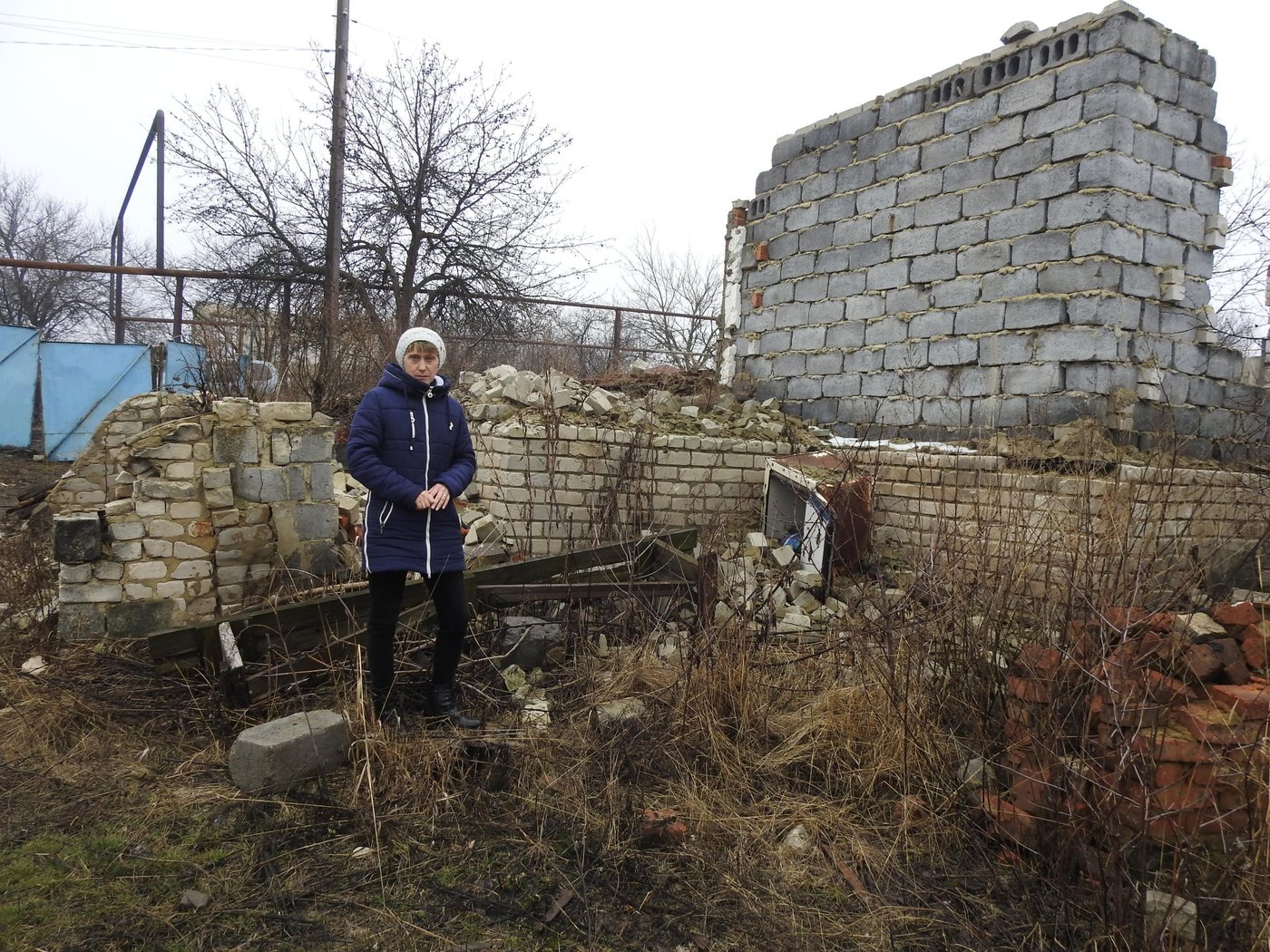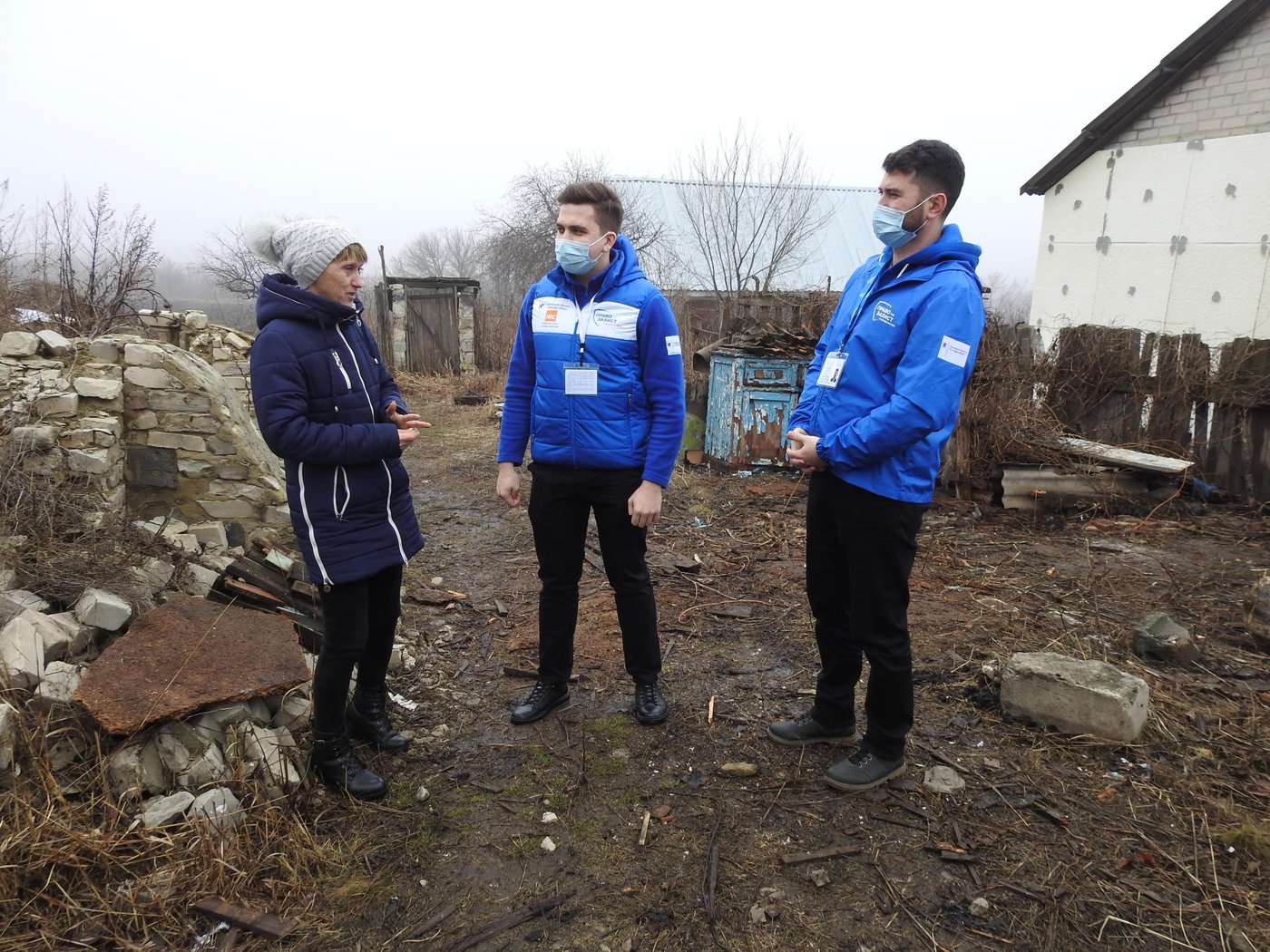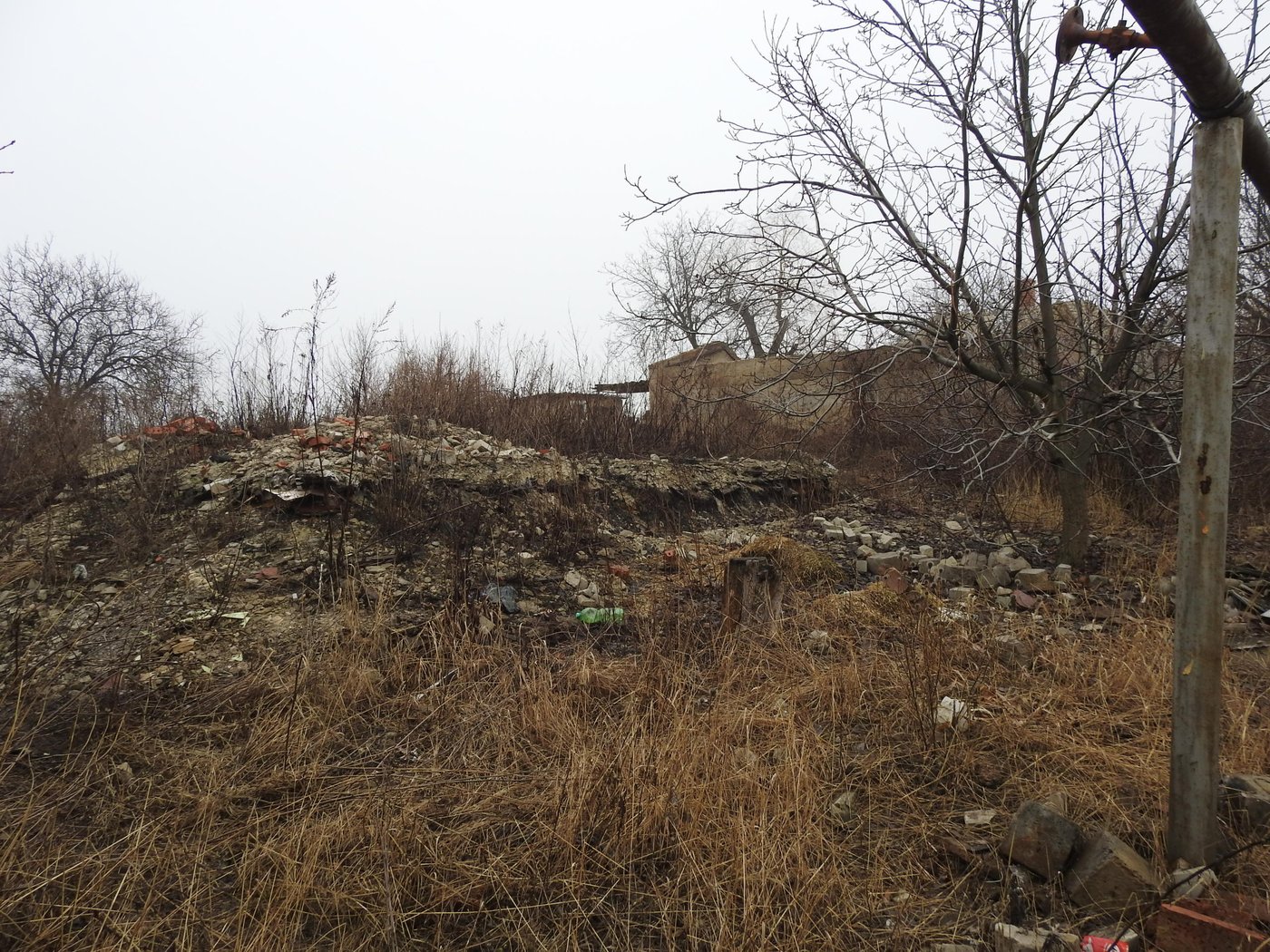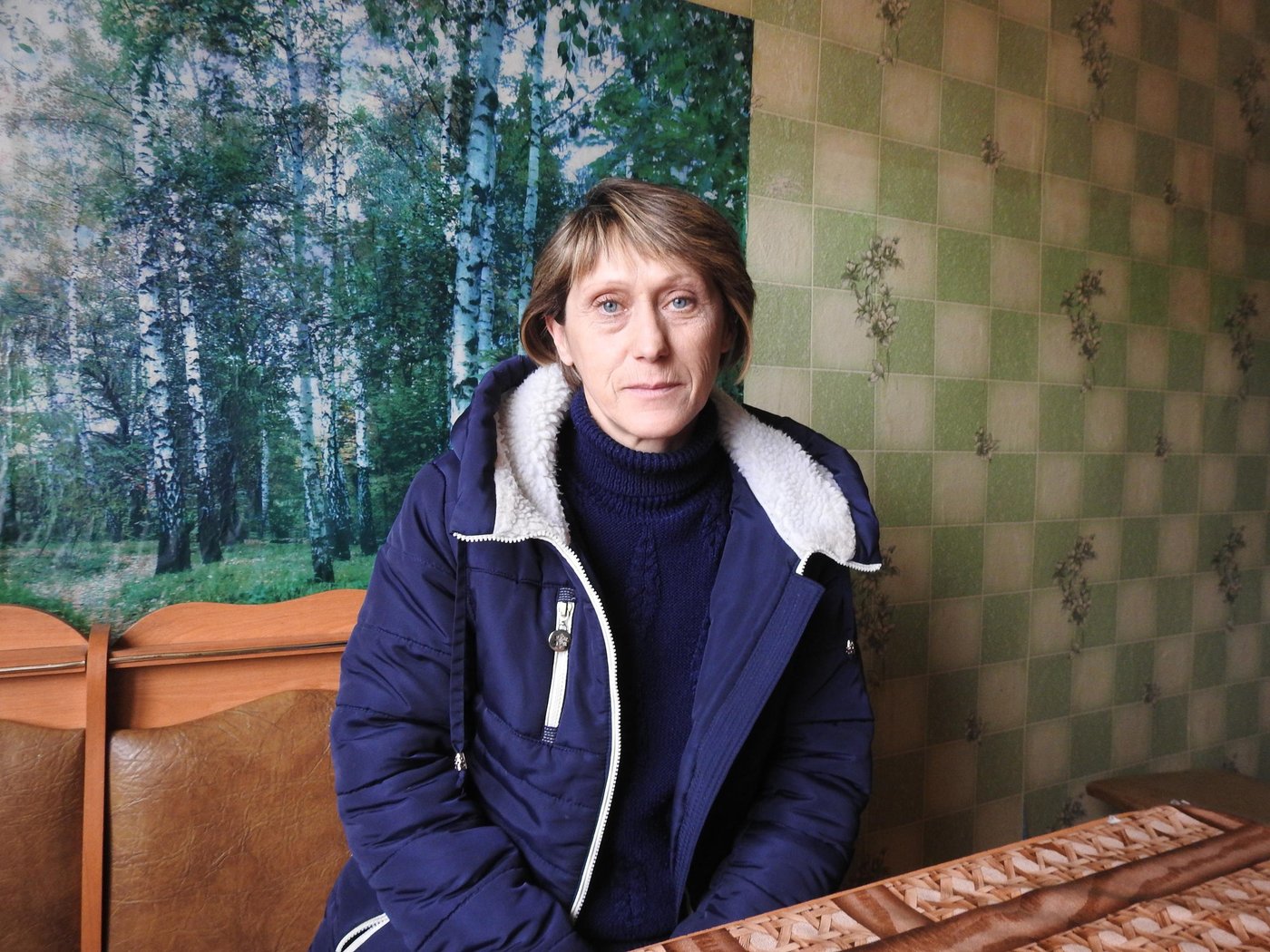“As well as the house, all the outbuildings in the yard were burnt out. For two weeks, I refused to go and see what was left of our once peaceful life.”
After seven years of armed conflict in eastern Ukraine, over 55,000 homes on both sides of the frontline have been damaged or destroyed in the fighting. However, efforts by the government and the humanitarian community have led to a significant reduction in needs.
According to the 2021 Humanitarian Needs Overview, it is estimated that 1,000 families in government-controlled areas and up to 9,000 in non-government-controlled areas currently need humanitarian assistance to renovate their homes.
NRC works to support refugees and displaced people in over 30 countries around the world, including Ukraine. Support our work today
Homes razed to the ground
Liudmyla Benzia, 47, lives with her husband in the village of Zolotarivka, in the Luhansk region of eastern Ukraine. Before the conflict began in 2014, Liudmyla was a homemaker who enjoyed gardening, while her husband worked on a farm.
Then, in just one day of shelling, Liudmyla and 11 other families in her village were left without a roof over their heads. Most of them have never been able to rebuild their homes, which were virtually razed to the ground.

The family survived on Liudmyla’s husband’s salary, with no-one to turn to for help.
“Six months after the destruction, the village council supported us with some small funds,” says Liudmyla. “Since this was not enough to restore our property, we bought a tiny flat in the village. We also received assistance from various humanitarian missions to meet our basic needs.”
Then, last year, Liudmyla’s cause was taken on by one of NRC’s local partner organisations, Right to Protection (R2P). With NRC’s support, R2P provides legal assistance to ensure a safe and dignified life for all people living in Ukraine.
“[R2P] contacted me to explain that it had become possible to receive compensation for destroyed housing. We had to fill out an application and collect together a package of documents and inspection reports,” says Luidmyla.
NRC works to support refugees and displaced people in over 30 countries around the world, including Ukraine. Support our work today
Long-awaited compensation
Mykyta Petrichenko is R2P’s regional legal officer. He explains that the compensation process has been drawn-out and complex.
“The first stage of collecting documents for compensation was in 2014–15, but the mechanism was not implemented. Only since September 2020 it has become possible to receive payments,” he says.
“We hold information sessions on obtaining compensation for the people affected and help them apply. Each case is different. If there are no issues with the title documents, then the receipt of compensation is guaranteed.
“People need legal assistance in drawing up a package of documents to obtain compensation because they do not know how exactly their property had to be registered earlier to get full-fledged ownership.”
Until the very last moment, I did not believe that things would work out. But the money arrived in our bank account a month after the authorities’ decision.Liudmyla Benzia
Liudmyla and her husband received the maximum possible payment – UAH 300,000 (approximately USD 10,800).
“Until the very last moment, I did not believe that things would work out. I thought it would be as it is always with us – we hand over all the documents, and that’s the end of it. But the money arrived in our bank account a month after the authorities’ decision,” says Liudmyla.
“Still, it would be better if our house were intact. We had to give up the ruins of our house to the state, which is the main condition for receiving compensation. However, our plot of land – our breadwinner – remains in the ownership of the family.”

NRC experts help draft a new law
Over the last six years, compensation has remained one of the most frequently cited issues among the conflict-affected population in Ukraine. With the international humanitarian community’s support, NRC has led the advocacy efforts on compensation by bringing in its global expertise in housing, land, and property rights.
“Compensation is an indispensable element of reparation and durable solutions for the conflict-affected and internally displaced people,” explains NRC advocacy manager Ganna Dudinska.
“NRC is a member of the Parliamentary Working Group that was created to develop the draft law on compensation. We also coordinate advocacy efforts on this issue in Ukraine.
“As a result of these efforts, the compensation procedure for destroyed housing was piloted, and 74 families received compensation in 2020. The amount of compensation was calculated based on the average market prices in the region. It should help those families to purchase a new home or make repairs.
“The state budget for 2021 includes UAH 114 million (approximately USD 4 million) for compensation payments and will allow compensation to be provided to about 380 families.”

Moving on
Meanwhile, Liudmyla and her husband are considering moving to another part of the country. They no longer see a future in their village.
“There is no work and no prospects here. Most of the young people left Zolotarivka long ago. And the remaining older people are gradually moving to other localities to be with their children and relatives.”
“We sent our son away from the war and now we want to be closer to him and his family. They live in the north of the country.”
***
After almost seven years of crisis in Ukraine, the government finally amended the rules surrounding monetary compensation for housing destroyed by conflict. Thus, people in government-controlled areas whose housing has been destroyed may now apply for compensation.
These amendments are a step forward, but there are still many issues to resolve. A broader framework law on compensation is needed, as well as technical guidance for damage assessments, compensation for damaged housing, and a registry to manage data about property rights violations.


